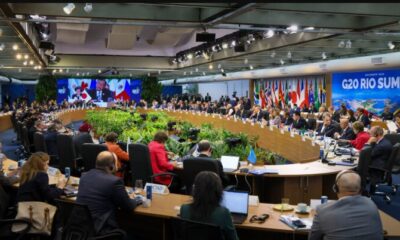World News
Anti-Semitism or Free Speech? College Students Cheer and Fear Trump Order
-

 Entertainment1 week ago
Entertainment1 week agoNaftunes Productions: Shaping the Future of Animation in Kenya
-

 Tech5 days ago
Tech5 days agoThe AI Arms Race: How Cyber-Defenders are Using AI to Fight AI-Generated Threats
-

 Tech5 days ago
Tech5 days agoThe Invisible Hand of AI: How Machine Learning is Building the Resilient, Self-Healing Supply Chains of Tomorrow
-

 General News3 days ago
General News3 days agoLamine Yamal: The Teen Who’s Redefining Spanish Football
-

 Business News2 days ago
Business News2 days agoBRICS Expansion: New Members, Currency Dreams, and a Bold Bid to Eclipse the West
-

 Jobs1 day ago
Jobs1 day agoUnveiling Mohamed Salah: The Egyptian King’s Secrets That Have the World Googling Non-Stop
-

 General News2 days ago
General News2 days agoMigration & Refugee Crises: Europe and the Americas Grapple with New Humanitarian Pressures
-

 Business News2 days ago
Business News2 days agoGlobal South Rising: Africa, Asia, and Latin America Demand a Louder Voice in World Governance


